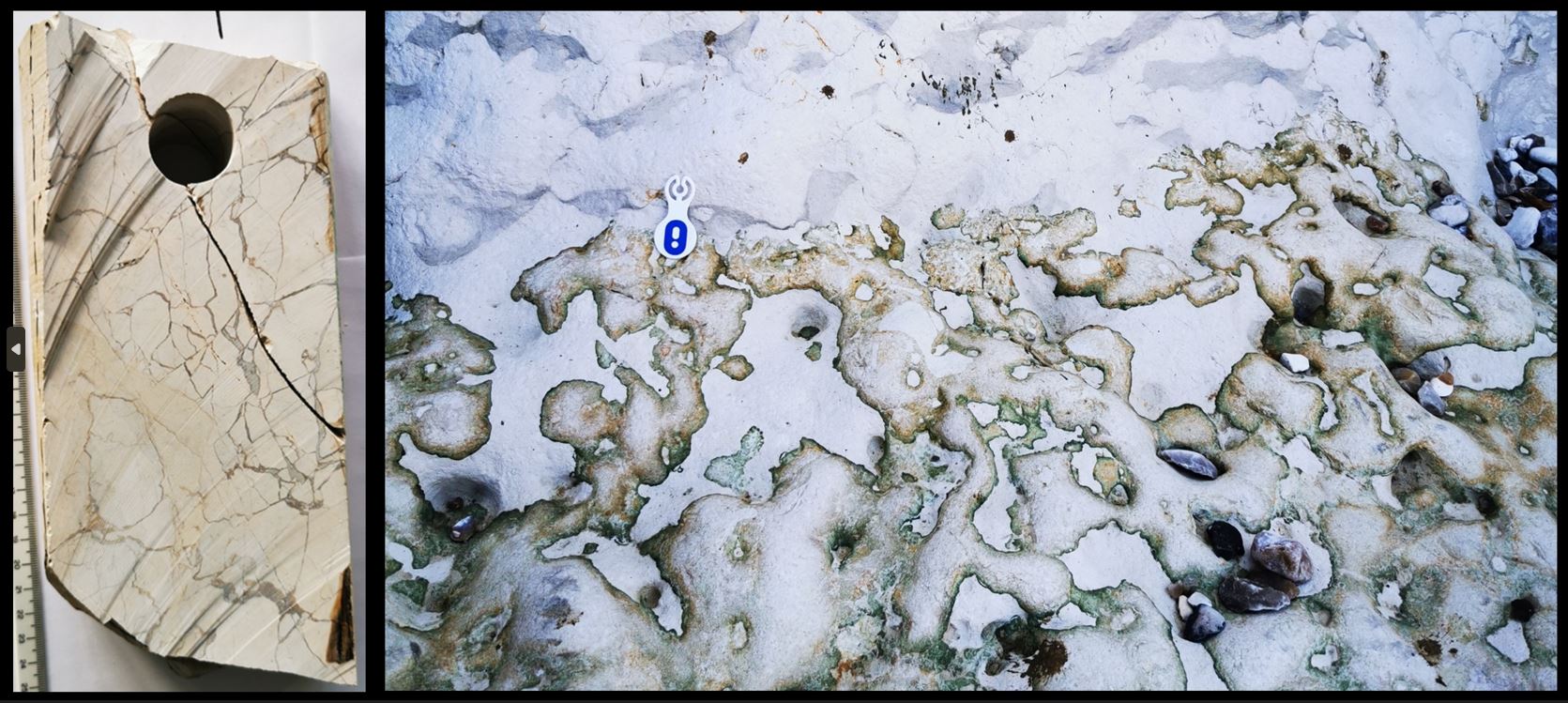In-person @NPD: Unravelling the Valhall Chalk Dense Zone Conundrum – Traditional vs. Innovative Interpretation

The Carbonate and Chalk Reservoirs Network Group invites to a Lunch & Learn on chalk diagenesis and geochemistry. Today’s speaker will be Andrew Moyle (Aker BP / University of Portsmouth).
| Date | Time | Duration | Register by | Location |
| 11. May 2023 | 11:30 | 90 Min | 4. May 2023 | TOR- NPD Entrance |
Summary
The Valhall field is a giant oil field composed of Upper Cretaceous chalk reservoirs, which has produced over a billion barrels of oil equivalent since the field was first put on production 1982. The current ambition is to produce another billion barrels over the next 40 years. To reach this target of extensively extending the life of the field, innovative drilling and production targets need to be explored.
One proposal to is to target so called intra-formational units called ‘Dense Zones’ (DZs), identified as hard, lithified chalk units in core, and defined on well logs as units of high density and low neutron responses, often fractured, and therefore potential units of enhanced permeability for production. It is therefore vital to understand the controls on DZ formation to predict their spatial location.
On the Valhall, the DZs were historically named as ‘Chalk Hardgrounds’. Hardgrounds are defined as syn-sedimentary horizons of hard, calcite cemented chalk which form during sediment hiatuses and relative sea level lows, often found on basin margins and submarine topographical highs. They are associated with nodular chalk and are characterised by extensive Thalassinoides burrows, boring and often heavily mineralised.
A recent study has now determined that the DZs present in the Valhall are not hardgrounds but are in fact units of cold-seep carbonates (carbonates precipitated at or near the sea floor as a result of the microbial breakdown methane from gas seeps).
This presentation will explore the journey of how the interpretation of DZs have changed with traditional interpretations to more innovative interpretations, utilizing enhanced imaging techniques and carbonate inorganic geochemistry to hunt for a carbonate in a carbonate.
About Andrew Moyle
Andrew – or short “Drew” – is a geologist with AkerBP who is in the process of completing his PhD on the Valhall field with the University of Portsmouth in partnership with AkerBP. He is experienced in carbonate geochemistry, which he utilised to better understand the formation of Cretaceous Chalk Dense Zones and to better predict their spatial distribution within the Valhall and neighbouring Hod fields, drawing from both outcrop analogues and well data. His work included developing a novel approach in applying stable isotope geochemistry and reconstructing paleo-redox conditions. Prior to his PhD, Drew acquired hands-on offshore experience as a mudlogger and as a geologist the mining industry.

FORCE seminars have previously been fully booked with waiting lists so you are encouraged to sign up as soon as you know you will attend.
Participation fees:
FORCE members: Free
Non-members: NOK 1000,-
University: Free
Student: Free
Important information:
You can register as a FORCE member and pay "FORCE member" price if you are an employee of a member company.
All FORCE member companies are listed here.
Payment is made online by credit card. Please note that no refunds will be given after you have signed up. If you for any reason can not attend the workshop, you are welcome to send a representative, just inform Linn Smerud as soon as there are changes.
Updated: 5/12/2023
